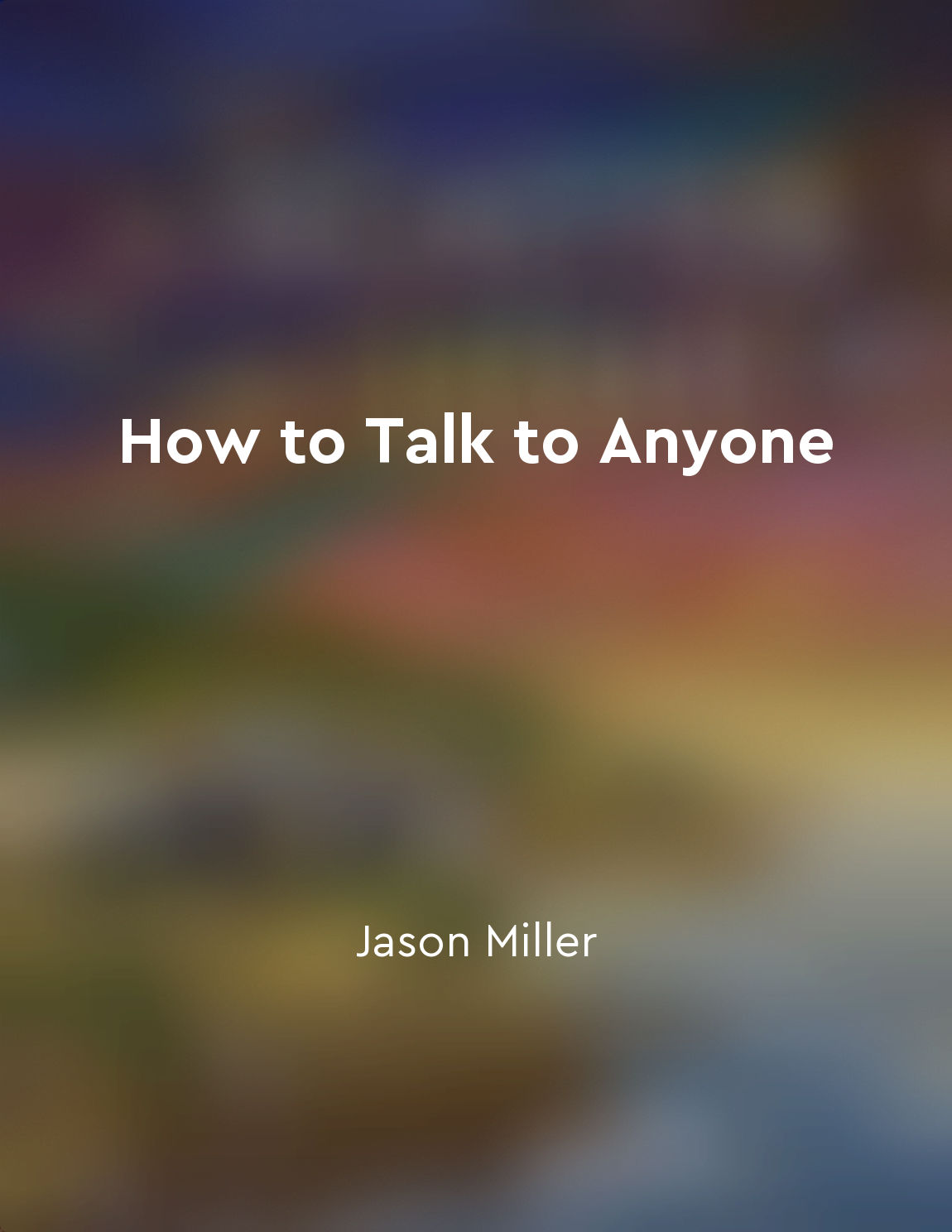Audio available in app
Use open body language from "summary" of How to Talk to Anyone at Work: 72 Little Tricks for Big Success Communicating on the Job by Leil Lowndes
When you're engaging in conversation with someone, your body language can speak just as loudly as your words. Closed-off body language, such as crossed arms or turned away shoulders, can signal defensiveness or disinterest. On the other hand, open body language can convey approachability and receptiveness. To use open body language effectively, start by maintaining eye contact with the person you're speaking to. This shows that you're focused on them and interested in what they have to say. Additionally, make sure to keep your posture relaxed and open. Avoid crossing your arms or legs, as this can create a barrier between you and the other person. Instead, try to face them directly and keep your body turned towards them. This shows that you're engaged in the conversation and open to hearing their thoughts and ideas. Another important aspect of open body language is using gestures to enhance your communication. Gestures can help emphasize your points and make your conversation more dynamic. Just make sure to keep your gestures natural and in sync with what you're saying. Avoid excessive or distracting movements that might detract from your message.- Open body language is a powerful tool for building rapport and establishing connections with others. By being mindful of your body language and making small adjustments to appear more open and welcoming, you can create a positive and engaging environment for conversation. So, next time you're talking to someone, pay attention to your body language and see how it can impact the way you communicate.
Similar Posts
Facial expressions reveal true emotions
When someone tells you they're feeling fine, but their eyebrows are furrowed and their lips are pursed, it's easy to see that s...
Interpersonal skills are essential in social and human services
Interpersonal skills play a crucial role in the field of social and human services. These skills are essential for professional...

Verbal cues can be deceiving
Verbal cues can often be misleading, leading us to believe one thing when the reality may be quite different. Our words can be ...
Handle conflicts with professionalism
When conflicts arise in the workplace, it's essential to approach them with professionalism. This means remaining composed and ...
Show respect and consideration for others' boundaries and preferences
Respecting others' boundaries and preferences means that you acknowledge and honor the limits that people set for themselves. I...

Be curious and ask thoughtful questions
Curiosity is a powerful tool when it comes to engaging in conversations with others. By being genuinely curious about the other...

Conflict resolution requires effective communication
Effective communication is a fundamental element in the process of conflict resolution. When individuals engage in a conflict, ...
Active listening enhances relationships
When we truly listen to someone, we are showing them that we care about what they have to say. This simple act of active listen...

Tone of voice can convey emotions effectively
The way we speak says a lot more than just words. Our tone of voice can reveal our emotions, intentions, and attitudes in a pow...
Constructive criticism aids personal growth
Constructive criticism plays a crucial role in personal growth. When someone provides feedback with the intention of helping th...

